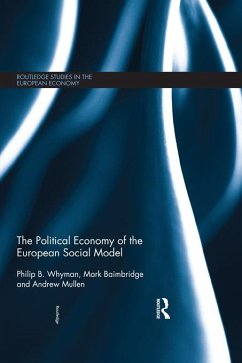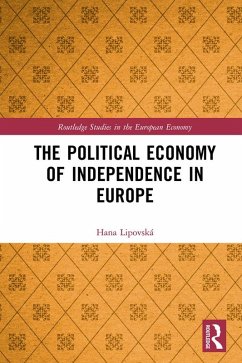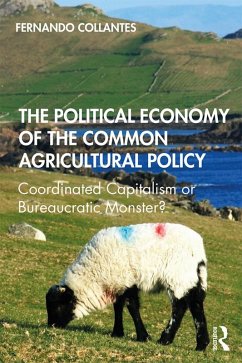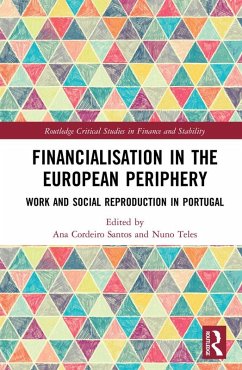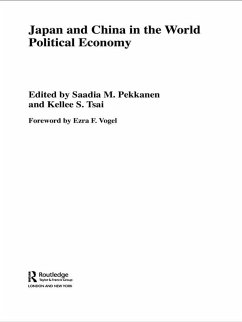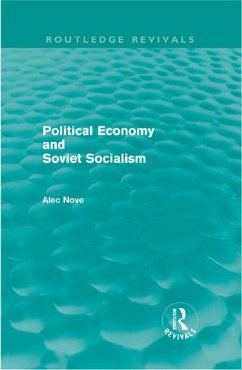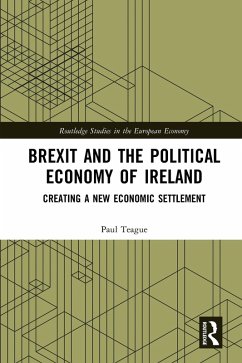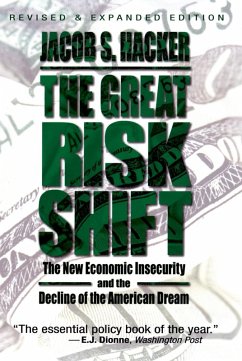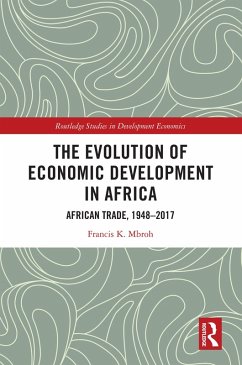
The Political Economy of the European Social Model (eBook, ePUB)
Versandkostenfrei!
Sofort per Download lieferbar
55,95 €
inkl. MwSt.
Weitere Ausgaben:

PAYBACK Punkte
28 °P sammeln!
This book seeks to analyse the development of the European Union (EU), which was founded upon the principle of the free movement of capital, goods, services and people in 1957. Its central thesis is that, from a practical and theoretical point of view, such a basis is fundamentally at odds with the creation of an interventionist regime that the construction of a social Europe would require.The authors argue convincingly that - economically: the EU does not currently possess the budget or the economic tools to pursue such a strategy; politically: close to none of the institutions of the EU have...
This book seeks to analyse the development of the European Union (EU), which was founded upon the principle of the free movement of capital, goods, services and people in 1957. Its central thesis is that, from a practical and theoretical point of view, such a basis is fundamentally at odds with the creation of an interventionist regime that the construction of a social Europe would require.
The authors argue convincingly that - economically: the EU does not currently possess the budget or the economic tools to pursue such a strategy; politically: close to none of the institutions of the EU have backed such a policy; practically: conservative and neo-liberal forces (among member states and the institutions of the EU) have repeatedly thwarted any moves in this direction. In reality, the Single Internal Market, Economic and Monetary Union, enlargement, the Lisbon Agenda and European Constitution projects all prioritise supply-side measures and expanding the scope of the market rather than the boosting of demand and other economic intervention. Consequently, constructing a social Europe in the face of this would appear problematic. Hence, in both theory and practice, the idea that there can be a social Europe vis-à-vis neoliberalisation is a contradiction in terms.
This controversial book will be an educating and refreshing read for advanced students and academics involved with European politics, the European Union, European Economics and Economic instititutions.
The authors argue convincingly that - economically: the EU does not currently possess the budget or the economic tools to pursue such a strategy; politically: close to none of the institutions of the EU have backed such a policy; practically: conservative and neo-liberal forces (among member states and the institutions of the EU) have repeatedly thwarted any moves in this direction. In reality, the Single Internal Market, Economic and Monetary Union, enlargement, the Lisbon Agenda and European Constitution projects all prioritise supply-side measures and expanding the scope of the market rather than the boosting of demand and other economic intervention. Consequently, constructing a social Europe in the face of this would appear problematic. Hence, in both theory and practice, the idea that there can be a social Europe vis-à-vis neoliberalisation is a contradiction in terms.
This controversial book will be an educating and refreshing read for advanced students and academics involved with European politics, the European Union, European Economics and Economic instititutions.
Dieser Download kann aus rechtlichen Gründen nur mit Rechnungsadresse in A, B, BG, CY, CZ, D, DK, EW, E, FIN, F, GR, HR, H, IRL, I, LT, L, LR, M, NL, PL, P, R, S, SLO, SK ausgeliefert werden.




